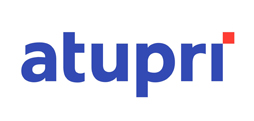Swiss compulsory health insurance covers many medicines, but not all. Many medicines that are not covered by mandatory health insurance may be covered by supplementary outpatient insurance.
Which medicines are covered by mandatory health insurance?
Mandatory Swiss health insurance covers the cost of medicines if they are prescribed by a doctor or hospital and are included in the official List of Pharmaceutical Specialties. The List of Pharmaceutical Specialties lists the medicines that insurance companies are required to cover. It can be found on the website of the Swiss Federal Office of Public Health (bag.admin.ch). You can also aks your doctor or pharmacist whether or not a medicine is covered by mandatory health insurance.
Medicines that are not on the List of Pharmaceutical Specialties may still be covered by your mandatory health insurance. This is possible if your doctor submits a request for coverage to your insurance provider. If the insurance provider accepts the application, then the medicine will be covered by your mandatory health insurance.
Does my insurance deductible apply to medicines?
Your mandatory health insurance will only cover remaining costs after discounting your annual deductible. Additionally, medicines are subject to a 10-percent coinsurance payment that you have to pay out of your own pocket.
If the medicine is available in a cheaper generic version with the same active ingredients, you may have to pay 40 percent of the cost out of your own pocket if you choose the overpriced version. Make sure to ask the doctor to prescribe the cheaper version of a medicine when one is available.
Which costs can be covered with supplementary health insurance?
Medicines that are not covered by compulsory health insurance must be paid out of your own pocket unless you have supplementary health insurance that covers them. Supplemental coverage for medicines is included in many complementary outpatient insurance offers.
Even supplementary health insurance does not cover the costs of all medicines. Each insurance provider has its own list of covered medicines. The supplemental health insurance from most Swiss insurers only covers medicines that are accepted by the Swiss Institute for Therapeutic Products (swissmedic.ch). Insurers may also have their own lists of medicines that are excluded from coverage. For example, lifestyle medicines, appetite suppressants, diet medication and anti-hair-loss treatment may be excluded.
If you are unsure whether the medicines you need are covered, consult your insurance provider’s list of covered and uncovered medicines, or ask your insurer or doctor.
As with compulsory health insurance, medicines must be prescribed by a doctor in order to be eligible for coverage. Alternative medicines must be prescribed by a therapist that is accepted by your insurance provider.
The outpatient insurance comparison on moneyland.ch lets you filter and sort offers based on the benefits that they provide. Use the “Medicines” sort option to compare offers based on their coverage for medicines. Make sure to compare the actual compensation you can claim for medicine purchases. There are big differences in the benefits provided by different supplemental insurance offers.
Almost all supplementary outpatient insurance offers include some coverage for medicines. But it is important to note that some offers only cover part of the cost – 50 percent, for example.
There are also offers with deductibles and limits on coverage (800 francs per year, for example).
Overview of supplementary outpatient insurance coverage for medicines
| Insurance offer |
Coverage for prescribed
medicines approved
by Swissmedic* |
Coverage for
other prescribed
medicines** |
Coverage for
alternative medicines*** |
Assura
Complementa Extra |
Max. CHF 50,000 over
the life of the insurance
policy. |
Not covered. |
Not covered. |
Assura
Natura |
Not covered. |
Not covered. |
90%, max. CHF 800
per year. |
Atupri
Intense |
100%. |
Not covered. |
50%, max. CHF 3000
per year. |
Atupri
Mivita Reala |
90%. |
Not covered. |
50%, max. CHF 1500
per calendar year. |
Atupri
Mivita Extensa |
90%. |
Not covered. |
75%, max. CHF 2500
per calendar year. |
| Aquilana Plus |
100%. |
Not covered. |
Max. CHF 1000. |
Aquilana Top
(can be combined with Plus) |
|
Not covered. |
Max. CHF 2000. |
CSS
MyFlex Economy |
90%. |
Not covered. |
Not covered. |
CSS
MyFlex Balance |
90%. |
Not covered. |
Not covered. |
CSS
MyFlex Premium |
90%. |
90%. |
Not covered. |
CSS
Alternative Insurance
Economy |
Not covered. |
Not covered. |
75%, max. CHF 1000
per calendar year. |
CSS
Alternative Insurance
Balance |
Not covered. |
Not covered. |
75%, max. CHF 3000
per calendar year. |
CSS
Alternative Insurance
Premium |
Not covered. |
Not covered. |
75%, max. CHF 10,000
per calendar year. |
Concordia
Diversa |
50%. |
Not covered. |
Not covered. |
Concordia
Diversa Care |
50%. |
Not covered. |
Not covered. |
Concordia
Diversa Plus |
75%. |
Not covered. |
Not covered. |
Concordia
Diversa Premium |
75%. |
Not covered. |
Not covered. |
Concordia
Natura |
Not covered. |
Not covered. |
In combination with
therapies: 75%,
max. CHF 1500 per
calendar year.
In combination with
naturopathy: 75%,
max. CHF 4000 per
calendar year. |
Concordia
Natura Plus |
Not covered. |
Not covered. |
In combination with
therapies: 75%,
max. CHF 2000 per
calendar year.
In combination with
naturopathy: 75%,
max. CHF 6000 per
calendar year. |
Groupe Mutuel
Supplemental Care Insurance
SC1 |
90%, max. CHF 600
per calendar year. |
90%, max. CHF 600
per calendar year. |
90%, max. CHF 600
per calendar year
(homeopathy). |
Groupe Mutuel
Supplemental Care Insurance
SC2 |
90%, max. CHF 800
per calendar year. |
90%, max. CHF 800
per calendar year. |
90%, max. CHF 800
per calendar year. |
Groupe Mutuel
Supplemental Care Insurance
SC3 |
90%. |
90%. |
90%. |
Groupe Mutuel
Supplemental Care Insurance
SC4 |
90% |
90% |
90%. |
Groupe Mutuel
Optimum |
90%. |
90%. |
90%. |
Groupe Mutuel
Premium |
90%. |
90%. |
90%. |
Helsana
Top |
90%. |
Not covered. |
Not covered. |
Helsana
Sana
(supplement for Top) |
|
Not covered. |
75%. |
Helsana
Completa |
90%. |
Not covered. |
75%. |
KPT
Plus |
90%. |
Not covered. |
Not covered. |
KPT
Comfort |
90%. |
Not covered. |
90%, max. CHF 200
per calendar year. |
ÖKK
Start |
90%, max. CHF 20,000
per calendar year. |
Not covered. |
Not covered. |
ÖKK
Natur Mini |
Not covered. |
Not covered. |
80%, max. CHF 300
per calendar year. |
ÖKK
Natur Midi |
Not covered. |
Not covered. |
80%, max. CHF 2000
per calendar year. |
ÖKK
Natur Plus |
Not covered. |
Not covered. |
80%, max. CHF 4000
per calendar year. |
Rhenusana
Rhenuplus Silber |
90%, max. CHF 5000
per calendar year. |
Not covered. |
Not covered. |
Rhenusana
Rhenuplus Gold |
90%, max. CHF 20,000
per calendar year. |
Not covered. |
75%, max. CHF 5000
per calendar year. |
Rhenusana
Rhenuplus Platin |
90%, max. CHF 50,000
per calendar year. |
Not covered. |
75%, max. CHF 10,000
per calendar year. |
Sanitas
Vital Basic |
90%. |
90%. |
Not covered. |
Sanitas
Vital Smart |
90%. |
90%. |
Option 1:
80%, max. CHF 2500
per calendar year.
Option 2:
80%, max. CHF 5000
per calendar year. |
Sanitas
Vital Premium |
90%. |
90%. |
80%, max. CHF 10,000
per calendar year. |
SLKK
Qualicare Basis |
75%, max. CHF 1200
per calendar year. |
Not covered. |
75%, max. CHF 1200
per calendar year. |
SLKK
Qualicare Comfort |
75%, max. CHF 5000
per calendar year. |
Not covered. |
75%, max. CHF 5000
per calendar year. |
| Sympany Plus |
90%. |
Not covered. |
80%. |
| Sympany Premium |
90%. |
Not covered. |
80%. |
Visana
Ambulant I |
90%, max. CHF 1000
per calendar year
for all medicines
combined. |
50%, max. CHF 1000
per calendar year
for all medicines
combined. |
Not covered. |
Visana
Ambulant II |
90%. |
50% |
Not covered. |
Visana
Ambulant III |
90%. |
50% |
Not covered. |
Visana
Ambulant IV |
90%. |
50% |
Not covered. |
* Medicines on the list of special-purpose pharmaceuticals are generally excluded from coverage. Medications for substance use disorders, alternative medicines, and lifestyle medicines are also generally excluded or subject to special, lower limits.
** Insurance providers may have lists of eligible medicines, with only medicines included on the list being covered.
*** Only for alternative treatments approved by the insurance provider for the specific insurance offer.
More on this topic:
Swiss health insurance comparison
Supplementary outpatient insurance comparison


 Deal of the Day
Deal of the Day 






